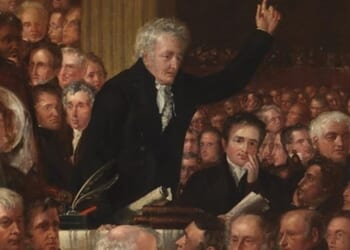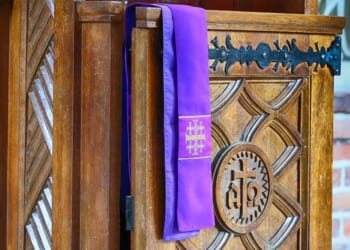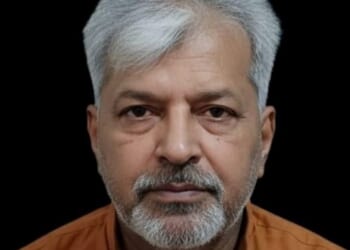After I wrote about David Bromberg this past Sunday, a reader wrote to invoke Bromberg’s friendship with Jorma Kaukonoen. He mentioned that Jorma is still touring at age 85. Like David Bromberg, Jorma has deep knowledge of traditional American music. They are both music nuts.
Jorma has a gift for making the music beautiful while keeping it alive. I looked back on my enjoyment of his work when he turned 82 a few years ago. Been so long, to borrow a phrase. Let’s revisit it today.
Jorma invited Bromberg perform at his Fur Peace Ranch in Ohio back in 2012. Bromberg played a sold-out show. Jorma joined him on the obscure “Keep On Drinkin’,” which Bromberg says he first heard performed by Big Bill Broonzy. Bromberg recorded his own arrangement of the song on his 2013 disc Only Slightly Mad. He states in the liner notes that he couldn’t discover the composer for the song. I can’t even find any evidence of the Big Bill original online. Let us make the transition from Bromberg last week to Kaukonen this week right here right now.
Jorma has had a long, varied, and interesting career in music deep in the American grain. He tells his story in the 2018 memoir Been So Long: My Life and Music. Although I saw him perform live for the first time in 2009, I’ve been a fan for more than 50 years. Smart and funny, Jorma is an encyclopedia of traditional American music as well as an engaging performer and songwriter.
In 2015 I saw Jorma touring in support of his new recording Ain’t In No Hurry, released on St. Paul’s own Red House Records (now a part of Compass Records Group). The disc leads off with “Nobody Knows You When You’re Down and Out,” which I have posted in due course below. It’s one of the songs on which Jorma accompanied Janis Joplin on a homemade tape recording in San Francisco in 1964 while Jorma’s wife pounded out something on the typewriter in the background. “The first time I met Janis, I realized I was in the presence of greatness,” he writes in the book. The 1964 tape recording is immediately below.
Jorma was a founding member and lead guitarist of Jefferson Airplane. He was there when the Airplane took off. His long-time friend and musical partner Jack Casady joined the group on bass in September 1965.
Jorma wrote several lesser known songs that made it on to Airplane albums. “She Has Funny Cars” was the opening number on Surrealistic Pillow (vocalist Marty Balin wrote the lyrics). It’s a little dated, but it still sounds good to me.
“Good Shepherd” is the second track on Volunteers, this one arranged by Kaukonen. He recalls learning it backstage from a pair of folksingers in 1963. “I had never heard anything so cool and in a most profound way, this moment of musical synchronicity would change my life!” He didn’t know where it came from. “I just wanted to play it and that’s what I did.” (In the book’s Appendix of Lyrics he explains: “This is an old-time spiritual/rock song. It was collected from the aging blind blues player Jimmie Strothers as ‘The Blood-Strained Banders,’ by Alan Lomax and Harold Spivacke on behalf of the Library of Congress in 1936.”)
Jorma also contributed “Turn My Life Down” to Volunteers. Balin turned in a great vocal. Stephen Stills propels the track on the Hammond organ.
Kaukonen and Casady split off to form Hot Tuna in 1969 as a side venture to pursue other interests, originally in acoustic blues, with Will Scarlett on harmonica. Their first album, recorded live in Berkeley, is a classic. The heart of the album consists of traditional blues songs with updated arrangements and numbers by gospel blues singer Reverend Gary Davis, Kaukonen’s first musical hero. “Death Don’t Have No Mercy” is one of them.
They close out the album with the instrumental “Mann’s Fate,” written by Kaukonen. It sounds to me like something important is under discussion here. It could be man’s fate. Jack Casady is an incredible musical partner on bass. He plays it like a lead guitar. In fact, I learned from Jorma’s memoir that Jack played lead guitar in their first DC teenage group. Jorma played rhythm.
Hot Tuna went electric on First Pull Up, Then Pull Down and Burgers. Jorma adapted “True Religion” from a traditional spiritual. As I say, this music is deep in the American grain. Papa John Creach is on the fiddle and Sammy Piazza on drums.
“Water Song” is another Kaukonen instrumental, also from the Burgers album. In his memoir he writes: “A simple series of chord changes could move me to tears at any given moment.” That’s the way I feel about this song. I assess hearing him play it live with Jack a peak experience.
Jorma titled his memoir Been So Long. This is the song — he wrote it — from the First Pull Up, Then Pull Down album.
I’ve seen Kaukonen perform mostly with Jack Casady as a duo, but also once in a trio with Casady and Barry Mittelhoff and once by himself. In the six or seven times I have seen him, he performed this song precisely once. I thought it sounded vaguely familiar. I could almost sing along with it, yet I just couldn’t place it. Where did it come from? Hint: James Jones has a writing credit on the song. When I got home and looked it up, I thought Jorma is one genuine music nut.
“Nobody Knows You When You’re Down and Out” is an old Bessie Smith song written by Jimmie Cox. How old is it? It’s nearly 100 years old. Jorma backed Janis Joplin on it on the 1964 tape above and returned to it on his Ain’t In No Hurry disc 50-some years later.
“Hesitation Blues” is one of the traditional numbers from the first Hot Tuna album. It leads off the album. Jorma and Jack went into the studio of Minnesota Public Radio to perform it when they came through town with Barry Mittelhoff in 2009. I caught up with them over at the Cedar Cultural Center in Minneapolis. Query whether it is right to make the blues so beautiful. That is a facetious question. Playing it so lovingly, however, they tend to belie the theme.
















